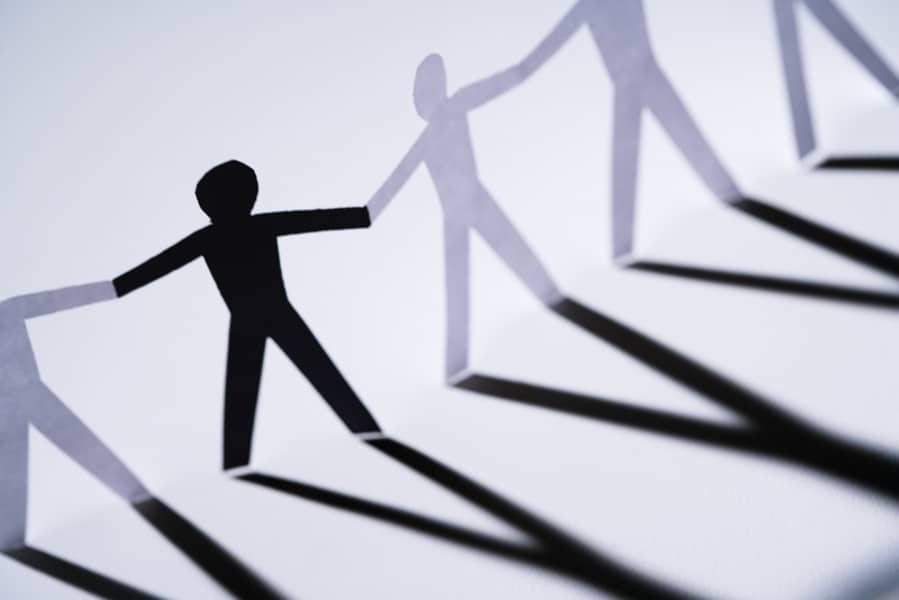Caregiver Depression – Real, Raw, and “Normal”

Depression is frequently a topic we tip-toe around, especially as caregivers. With all the issues we deal with on a daily basis, our problems are insignificant, right? WRONG! Parent and special needs advocate Maria Pepperworth speaks openly about depression as a caregiver today.
Life as a special-needs parent can be exhausting and lonely. Special-needs parents have a higher rate of depression and anxiety (mothers and single parents are even more at risk). The added emotional, medical and social challenges of raising special needs kids can be exhausting and overwhelming. It is SO important to have people that will check in on you. To have people that you trust enough to tell when you’re having a hard time. Know what resources are available to you in your community. It’s important to be honest when you need help. Asking for help is one of the bravest things that you can ever do. It’s not a sign of weakness, it’s a sign of strength. You cannot run the well dry and expect to give the best care to your kids.
You cannot run the well dry and expect to give the best care to your kids.
Learn the signs of depression. Good and bad days are normal, but it’s time to seek help when symptoms like hopelessness, exhaustion, suicidal thoughts etc. are not going away. Depression and anxiety are also very prevalent in teens and adults with disabilities. It’s important to learn the signs for that reason as well. As our children get older, we need to watch for the symptoms of them falling into depression.
Some symptoms of depression are:
- Insomnia (not sleeping) or hypersomnia (sleeping too much)
- Fatigue or low energy
- Low self-esteem
- Poor concentration or difficulty making decisions
- Feelings of hopelessness
- Loss of interest in previously enjoyed activities and motivation
- Poor appetite or Increased appetite
Taking care of your physical and mental health is one of the best things you can do. Take your vitamins. See your doctor. Take your meds. Talk to a counselor if you need to. Get sleep when you can. Trust me, I know how difficult that one can be. I don’t think I’ve gotten a full nights sleep since my first kid was born. Autism life is like that!
It can be helpful to find things that are just for you. For some, it’s reading, or writing in a journal. For others, it’s painting, or taking a quiet time to watch your favorite TV show… What relaxes you, or replenishes you? You’re not perfect, you’re not a superhero, you are a human. Take care of yourself, please. Your kids need you, and the world needs you in it. No one else can play your part.
You’re not perfect, you’re not a superhero, you are a human.
For me, my escape has always been music. No matter what the issue, I can think of a song or a band that will be able to give me what I need at that moment. From screaming metal, to the soothing strums on an acoustic guitar. Music does really sooth the savage beast. It’s my happy place, and the place I go to escape the chaos in my head and life.
I hope that you have something just for you. Something that reaches out to you on the really tough days and on the dark days. Something that gives you some peace.
It’s also very important to find other parents that you can connect to. People that have some kind of understanding what your life is like. Some of the greatest people in my life I have never met in person! I have a wonderful friend group of fellow autism parents online. Some of us have been connected since back in the MySpace days. We share each other’s joys and sorrows, have been through divorces, births and even deaths together. We celebrate milestones, and we cry and get angry with each other over the hard times. One of the blessings of technology is that you don’t have to feel like you are utterly alone. You can reach out to one of your friends across the nation and have a shoulder to lean on when things get difficult. If you can find in person support like this in your community as well, that is amazing. Parenting groups, play groups, etc. can really help you see that other people understand.
You are not alone. There are other quirky families out there. Building relationships with people that accept you and your family as you are is HUGE. My wish for you is that you will find people that will partner with you in your journey and will hold you up when you feel too weak to stand. I hope that you will be that person for someone else as well.
Taking care of yourself and your own mental health makes you a healthier and better parent. Find some joy in the little things, even on the hard days. The giggle your daughter makes when she sees bubbles. Your son belting out something inappropriate yet hilarious at the grocery store. Bedtime hugs and prayers. The looks on their faces when they’re sleeping. Not every day is good, but there is good in every day. Find the good.
You matter. You are needed. You are loved.
Asking for help is the bravest thing you can do.
Here are a few resources:
From Depression And Disability: (Link to pamphlet below)
“Depression is an illness that affects more than 17 million Americans each year. Many of those people are individuals with disabilities. Not everyone with a disability becomes depressed, and those who do become depressed may not be depressed because of their disability. However, people with disabilities face unique challenges and stresses which place them at increased risk for depression.
Depression is a common and serious health problem. About 12% of all men and
20% of all women are expected to have at least one significant episode of depression in their lifetime, and 5% of the general population may be depressed at any given point in time. Studies have shown that symptoms of depression may be 2 to 10 times more common in individuals with disabilities or chronic illnesses, and depression is one of the most common “secondary conditions” associated with disability and chronic illness.”
- http://fpg.unc.edu/sites/fpg.unc.edu/files/resources/other-resources/NCODH_Depression.pdf
- https://www.stonesoupgroup.org/start-here/programs-services/family-to-family-support/
- https://www.stonesoupgroup.org/event/building-strong-parents-12/
- http://mentalhealthtreatment.net/alaska/
- http://carelinealaska.com/
- AlaskaCARELINE (1-877-266-4357/HELP) Mental Health Emergency Counseling line (907-563-3200)
- https://twloha.com/
- http://flappinessis.com/i-let-him-in/
- https://www.special-learning.com/article/depression




